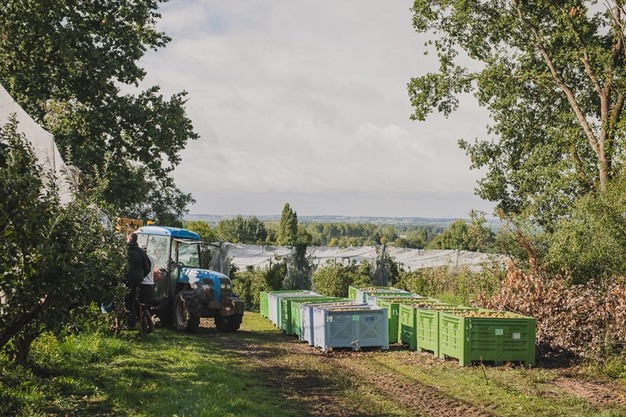After suffering significant losses to its hazelnut harvest due to a "lack of effective plant protection molecules," the Unicoque cooperative exemplifies the vulnerability of French agriculture. In response, major fruit and vegetable organizations, including ANPP, FNPFruits, AOP Pêches et Abricots, UNPT, BIK, Légumes de France, and FN3PT, have criticized France's regulatory approach, which they claim "goes against the grain" of broader European policies. They urge that French producers be granted access to the same crop protection tools as their European counterparts.
 These organizations highlight that a 2016 French law bans using three insecticides still permitted in the EU, calling it "a contradiction within a free trade area." / © FNPFruits
These organizations highlight that a 2016 French law bans using three insecticides still permitted in the EU, calling it "a contradiction within a free trade area." / © FNPFruits
"2024 Could Be the End for the Hazelnut Industry"
France's hazelnut sector has already suffered significant damage, with two-thirds of its production destroyed by the sinister bug and the balanin weevil. Meanwhile, Italy, Europe's leading hazelnut producer, manages to mitigate these threats using acetamiprid, an insecticide banned in France. "With such severe losses and no path to recovery, 2024 could mark the collapse of this sector of excellence," they caution, allowing better-protected Italian and Turkish producers to dominate the market.
All Sectors at Risk
The crisis extends beyond hazelnuts, impacting other crops such as kiwifruit, also threatened by the sinister bug, and peaches, nectarines, apricots, and apples, which risk complete loss from aphid infestations. "This year, we observed a marked increase in sorting discrepancies," confirms Raphaël Martinez, Director of PDO Pêches et Abricots de France. While typical discrepancies range between 10% and 15%, they reached 25% in 2024. These discrepancies stem from both seasonal factors—wind, hail—and pest damage. "The reduction in phytosanitary solutions weakens our industries. While less severe for us than others, losing products like Movento by 2026 is deeply concerning," Martinez notes.
Vegetable production is similarly affected. Lettuce, endive, artichoke, strawberries, and cabbage now lack effective solutions, unlike their European counterparts. Seed potato growers face more plants being rejected or downgraded. In seed production, crops such as radish and red clover are in sharp decline due to insufficient pest control options.
Legislative Action
On October 15, MPs Lise Magnier and Senators Laurent Duplomb and Franck Ménonville introduced Bill 384. This bill aims to give French farmers access to the same crop protection resources as their European peers, preventing regulatory overreach and competitive distortion within the EU. "These measures were initially part of the Pacte and Loi d'orientation et d'avenir agricoles but were sidelined after June's dissolution," Martinez explains.
